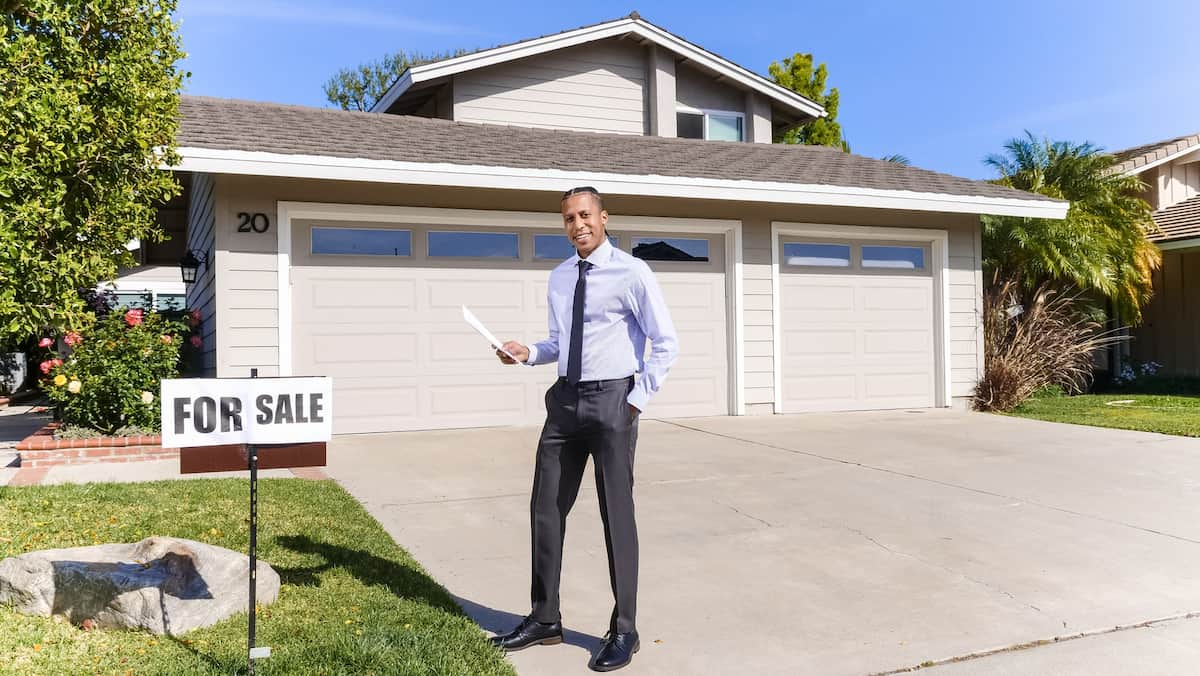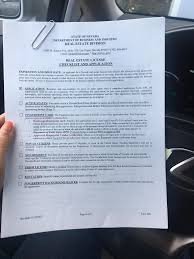
Real estate has many advantages, but there are also several disadvantages to consider before deciding whether it is the right investment for you. It's always important to consider the pros and cons of any investment before making a final decision.
As a real estate agent, you can help others achieve their goals. It is even more rewarding when you are working with new homebuyers or sellers, who want to purchase the property of their dreams. It's inspiring and heartwarming to see the gratitude that they show when they achieve their goals.
One of the benefits to becoming an agent in real estate is that you can make a lot of money. You can get commissions for the sales of property you represent, as well as from your client's mortgage payment. This enables you to build a huge portfolio of investments without having all your own funds invested.
However, you must be careful to avoid overextending yourself. Do not buy a house you cannot repay within the next few years. You shouldn't buy too many rentals. You could lose out on revenue if you invest in too many properties.

Real estate transactions can be complicated, requiring a great deal of effort, time and knowledge. This requires a significant investment in cash upfront. Included are the downpayment, closing costs, and property repairs and updates.
As with any investment, you should always consult a financial advisor or tax professional before making an investment decision. It is important to do research and make sure that you fully understand the details about the type of real-estate in which you plan to invest.
Real estate has the advantage that its value increases over time. This is called appreciation and is a good way to build wealth over time.
This is known as positive leverage. You can use your savings or borrow money against a home loan to buy real estate. You can make purchases for less than the full cost of a property. This will result in a greater ROI (Return On Investment).
The inflation trend usually cuts into the earnings of most investments. However, real estate does not follow this pattern. In fact, it tends to appreciate at a faster rate than inflation does.

This makes it a very attractive option for those who want to protect their hard-earned money from inflation. Rental properties can generate positive cash flows and provide a steady stream of income.
The biggest disadvantage to investing in real-estate is that it requires a lot of capital. It includes the down payment, repairs and upgrades to the property as well as ongoing expenses such insurance, tax and maintenance. If you are not sure if your investment in real estate will be successful, it's best to invest in more traditional assets such as bonds.
FAQ
Is it possible to quickly sell a house?
If you plan to move out of your current residence within the next few months, it may be possible to sell your house quickly. Before you sell your house, however, there are a few things that you should remember. First, you will need to find a buyer. Second, you will need to negotiate a deal. Second, prepare your property for sale. Third, you need to advertise your property. Finally, you need to accept offers made to you.
How much does it cost to replace windows?
Replacing windows costs between $1,500-$3,000 per window. The exact size, style, brand, and cost of all windows replacement will vary depending on what you choose.
Is it better to buy or rent?
Renting is often cheaper than buying property. But, it's important to understand that you'll have to pay for additional expenses like utilities, repairs, and maintenance. Buying a home has its advantages too. You will be able to have greater control over your life.
Do I need to rent or buy a condo?
Renting could be a good choice if you intend to rent your condo for a shorter period. Renting saves you money on maintenance fees and other monthly costs. On the other hand, buying a condo gives you ownership rights to the unit. You have the freedom to use the space however you like.
Statistics
- 10 years ago, homeownership was nearly 70%. (fortunebuilders.com)
- This seems to be a more popular trend as the U.S. Census Bureau reports the homeownership rate was around 65% last year. (fortunebuilders.com)
- Some experts hypothesize that rates will hit five percent by the second half of 2018, but there has been no official confirmation one way or the other. (fortunebuilders.com)
- When it came to buying a home in 2015, experts predicted that mortgage rates would surpass five percent, yet interest rates remained below four percent. (fortunebuilders.com)
- It's possible to get approved for an FHA loan with a credit score as low as 580 and a down payment of 3.5% or a credit score as low as 500 and a 10% down payment.5 Specialty mortgage loans are loans that don't fit into the conventional or FHA loan categories. (investopedia.com)
External Links
How To
How to Manage a Rental Property
It can be a great way for you to make extra income, but there are many things to consider before you rent your house. This article will help you decide whether you want to rent your house and provide tips for managing a rental property.
Here are the basics to help you start thinking about renting out a home.
-
What are the first things I should consider? Consider your finances before you decide whether to rent out your house. You may not be financially able to rent out your house to someone else if you have credit card debts or mortgage payments. You should also check your budget - if you don't have enough money to cover your monthly expenses (rent, utilities, insurance, etc. This might be a waste of money.
-
What is the cost of renting my house? Many factors go into calculating the amount you could charge for letting your home. These factors include the location, size and condition of your home, as well as season. Prices vary depending on where you live so it's important that you don't expect the same rates everywhere. Rightmove reports that the average monthly market price to rent a one-bedroom flat is around PS1,400. This means that your home would be worth around PS2,800 per annum if it was rented out completely. Although this is quite a high income, you can probably make a lot more if you rent out a smaller portion of your home.
-
Is it worth the risk? It's always risky to try something new. But if it gives you extra income, why not? It is important to understand your rights and responsibilities before signing anything. You will need to pay maintenance costs, make repairs, and maintain the home. Renting your house is not just about spending more time with your family. These are important issues to consider before you sign up.
-
Are there any benefits? Now that you have an idea of the cost to rent your home, and are confident it is worth it, it is time to consider the benefits. There are many reasons to rent your home. You can use it to pay off debt, buy a holiday, save for a rainy-day, or simply to have a break. It's more fun than working every day, regardless of what you choose. If you plan ahead, rent could be your full-time job.
-
How can I find tenants Once you've decided that you want to rent out, you'll need to advertise your property properly. You can start by listing your property online on websites such as Rightmove and Zoopla. After potential tenants have contacted you, arrange an interview. This will help you evaluate their suitability as well as ensure that they are financially secure enough to live in your home.
-
What can I do to make sure my home is protected? If you fear that your home will be left empty, you need to ensure your home is protected against theft, damage, or fire. Your landlord will require you to insure your house. You can also do this directly with an insurance company. Your landlord will often require you to add them to your policy as an additional insured. This means that they'll pay for damages to your property while you're not there. If your landlord is not registered with UK insurers, or you are living abroad, this policy doesn't apply. In such cases you will need a registration with an international insurance.
-
You might feel like you can't afford to spend all day looking for tenants, especially if you work outside the home. Your property should be advertised with professionalism. Make sure you have a professional looking website. Also, make sure to post your ads online. Additionally, you'll need to fill out an application and provide references. Some prefer to do it all themselves. Others hire agents to help with the paperwork. You'll need to be ready to answer questions during interviews.
-
What should I do once I've found my tenant? You will need to notify your tenant about any changes you make, such as changing moving dates, if you have a lease. You may also negotiate terms such as length of stay and deposit. You should remember that although you may be paid after the tenancy ends, you still need money for utilities.
-
How do you collect rent? You will need to verify that your tenant has actually paid the rent when it comes time to collect it. If your tenant has not paid, you will need to remind them. You can subtract any outstanding rent payments before sending them a final check. You can always call the police to help you locate your tenant if you have difficulty getting in touch with them. The police won't ordinarily evict unless there's been breach of contract. If necessary, they may issue a warrant.
-
How can I avoid problems? While renting out your home can be lucrative, it's important to keep yourself safe. Make sure you have carbon monoxide detectors installed and security cameras installed. Make sure your neighbors have given you permission to leave your property unlocked overnight and that you have enough insurance. Do not let strangers in your home, even though they may be moving in next to you.